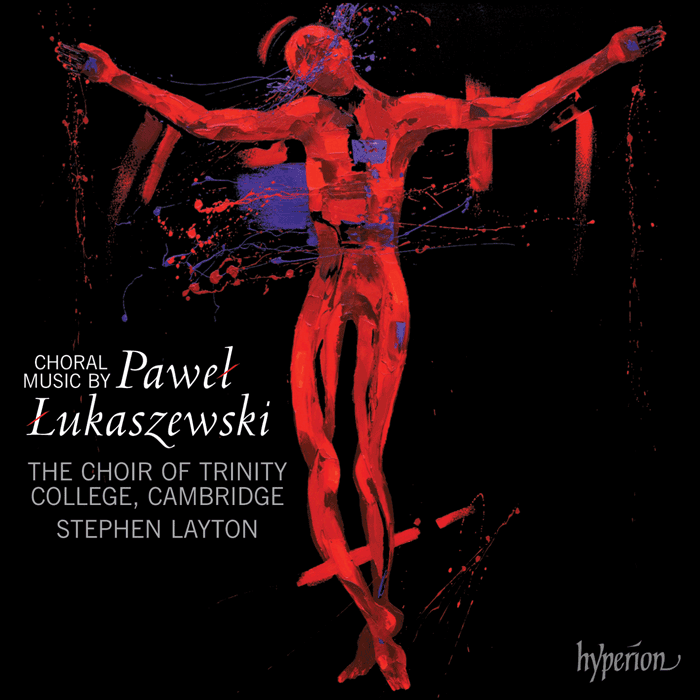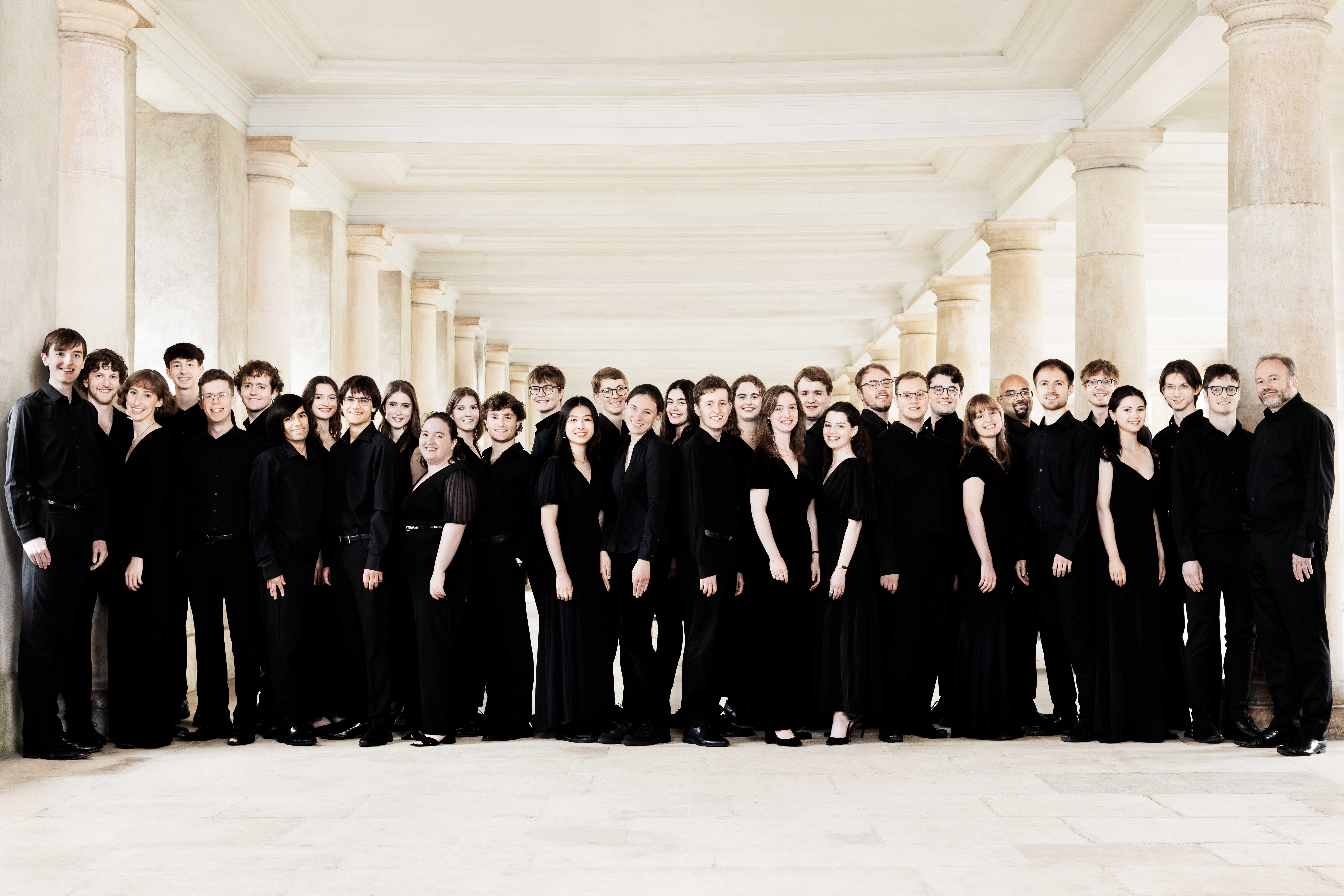Lukaszewski - Choral Works - Music Web International
> See recording details...The name of the Polish composer, Pavel Lukaszewski, may be new to some readers, as it was to me. He was born in Częstochowa, the city in southern Poland, which has been for centuries a centre of pilgrimage. The famous icon of the Black Madonna of the Virgin Mary is kept in a monastery in the city and this has acted as a magnet to pilgrims. Thus Lukaszewski hails from a key centre of Polish Catholicism and perhaps this accounts for a strong bias towards vocal and choral music, much of it on religious subjects, in his œuvre to date. The son of a composer, Wojciech Lukaszewski (1936–1978), Pavel Lukaszewski studied cello and composition at the Frédéric Chopin Academy of Music in Warsaw, where since 1996 he himself has taught composition. He is also active as a conductor, especially of choral music.
In his booklet note Paul Wingfield suggests affinities with the music of Górecki, Pärt and John Tavener. I’d agree with that. This is not to say that Lukaszewski’s music is “like” that of any of these composers, for he has his own individual voice, but Wingfield’s list is useful to give newcomers to this composer some points of reference. In other words, if you respond positively to any of them then I think you’ll warm to Lukaszewski also. In my view, however, his harmonic palette is richer and wider than any of these illustrious peers and I think there’s also greater rhythmic variety. Over half of Stephen Layton’s programme is devoted to settings of the seven ‘O Antiphons’, composed by Lukaszewski between 1995 and 1998. These are in Latin, as are all the other pieces in this collection. Arvo Pärt has also made a setting of these texts, though his is in German and is somewhat briefer than Lukaszewski’s. In liturgical usage these antiphons are said or sung before and after the Magnificat at the service of Vespers in the week preceding Christmas. However, both Pärt and Lukaszewski have designed their settings for non-liturgical use. Lukaszewski’s antiphons can be performed separately from each other but heard in sequence, as here, they make a compelling experience.
In these antiphon settings Lukaszewski writes music that offers a vivid and individual response to the texts. In the first, ‘O Sapientia’, the use of alternating sections of vigorous, dancing rhythms and more contemplative passages makes a strong impression on the listener. The third antiphon, ‘O Radix Jesse’, features from the start quite dense choral textures, from which a solo soprano voice occasionally rises. Incrementally, Lukaszewski thickens his textures and eventually he introduces a number of special effects, such as glissandi, parlando and susurrando. None of these effects is overdone but they enrich the expression significantly.
The seven antiphons, when heard sequentially, form a kind of musical arch. At the centre of this arch is ‘O Clavis David’. This is a very arresting setting, containing some of the most powerful and highly charged music on the whole disc. After this the lighter, luminous textures at the start of ‘O Oriens’ make for a telling contrast. It’s also typical of the composer’s responsiveness to words that his music should suggest light when he’s setting a verse that begins “O star of the morning, splendour of eternal light”. The last antiphon, ‘O Emmanuel’, provides a stunning conclusion in a way that vindicates performing the antiphons as a sequence. The setting encompasses perhaps the widest dynamic range of the seven and, from hushed beginnings, the music rises rapidly to a full-throated acclamation of the coming Christ. But, in a subtle twist, the ending is quiet, which I find most effective. This is a superb set of pieces, affording a rich and rewarding listening experience.
The remainder of the programme is similarly impressive. The setting of Psalm 102 is vivid, offering music that is often dramatic and powerful. The music complements the Psalmist’s words most aptly. It’s interesting how at the beginning and end in particular Lukaszewski’s music is clearly influenced by chant. The Two Lenten Motets are also noteworthy. The first, Memento mei, Domine, builds urgently but then concludes in a mood of calm, or resigned, acceptance. Its companion, Crucem tuum adoramus, Domine, is outstandingly beautiful, with a melodic line that undulates almost ecstatically. The whole setting seems to me to express humble gratitude for Christ’s sacrifice on the cross. The piece impresses as a product of sincere, firm faith. It’s a very lovely setting. The recital includes pieces from both ends of Lukaszewski’s career to date. Ave Maria is one of his earliest works. It strikes me as a rather feminine setting, something which is emphasised by a pure soprano solo, winningly sung here by Rebecca Lancelot. There is a shorter, more urgent section before the return of the gentle, lyrical music with which the piece began. And at the other end of the time line is a very recent piece, a setting of the Nunc dimittis. This is a beautiful and deceptively simple setting, which Lukaszewski has dedicated to Stephen Layton, presumably in gratitude for his work on behalf of his music. All I can say is that in the unlikely event that someone dedicated such a lovely piece to me I’d feel humbled by it.
This disc confirms the continuing excellence of the Trinity College choir. The sound is fresh but the ensemble also has the requisite tonal weight. The singers blend superbly and sing this demanding programme of a cappella music with evident commitment and dedication. Stephen Layton clearly believes in the music and directs it with great understanding. The recorded sound is first rate. Paul Wingfield’s notes are generally very helpful, though occasionally a little technical for the general reader. On the evidence of this CD Pavel Lukaszewski is a significant voice in contemporary choral music. He manages to write music that challenges the listener – to say nothing of the performers – while remaining accessible at all times. He has something fresh to say but he is respectful of and responsive to established traditions. It’s hard to imagine his music could be better served than it is here. This disc is an outstanding introduction to a composer of whom I hope to hear much more.
John Quinn

Hyperion Records CDA67639
